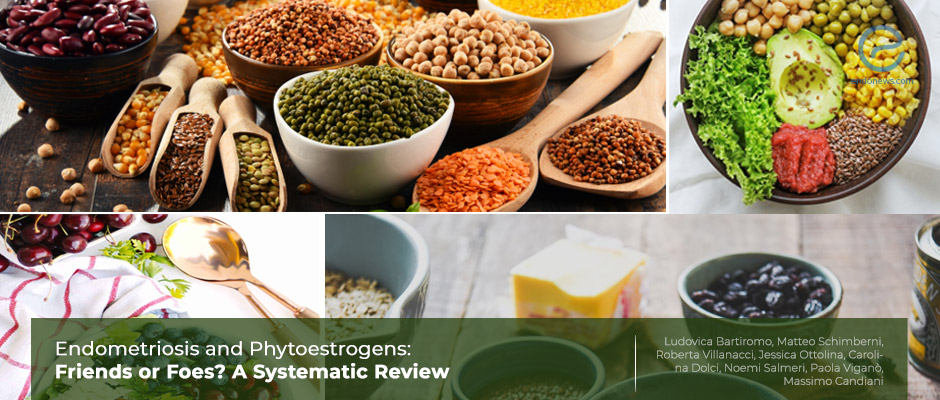Phytoestrogens could have promising effects in endometriosis management
Nov 25, 2021
There is need for well-designed studies to better investigate the effects of phytoestrogens in endometriosis
Key Points
Highlights:
- The local increase in estradiol and modifications of estrogen receptor expression in the ectopic endometrial tissues may activate a network of genes regulating cell proliferation.
- Phytoestrogens with possible effects on endometriotic tissues exist in various types of food including fruits, vegetables, sprouts, beans, cabbage, soybean, grains, tea, and oilseeds.
Importance:
- Phytoestrogens yield poor estrogenic activity in low-estrogen environments like menopause and have antiestrogenic activity in high-estrogen environments such as endometriosis and endometrial cancer.
What's done here:
- This is a systematic review of phytoestrogens aiming for a general view of their plausible role in the treatment of endometriosis.
Key results:
- Phytoestrogens have anti-proliferative, anti-angiogenic, anti-inflammatory, pro-apoptotic, and anti-oxidant properties
- Above characteristics make them potential research candidates for possible endometriosis management.
- Further well-designed studies are needed to better delineate the effects of phytoestrogens in women affected by endometriosis.
Lay Summary
Dr. Bartiromo and associates from Milan, Italy published a systematic review on phytoestrogens and endometriosis in the periodical “Nutrients”.
Endometriosis has features of chronic inflammation based on uncontrolled hormonal response and immune-mediated dysfunctions. Estrogens are endocrine and paracrine agents that could yield adverse effects locally, even with modest variations of estrogen production. From this point, local increase in estradiol and modifications of estrogen receptor expressions in ectopic endometrial tissues may activate a network of cell proliferation genes.
Phytoestrogens consist of flavonoids (i.e., puerarin, genistein, coumestrol, epicatechin and naringenin), lignans (i.e., enterolactone), and stilbenes (i.e., resveratrol). These substances are present in various fruits, vegetables, sprouts, beans, cabbage, soybean, grains, tea, and oilseeds. They possess similarities to estrogens with their phenolic structures and yield weak estrogenic effects and interference with hormonal and molecular signaling.
The authors conducted an advanced, systematic search of medical databases using “endometriosis” in combination with “phytoestrogen”, “flavonoid”, “non-flavonoid”, “isoflavone”, “coumestan”, “lignan” and “resveratrol”. In order to optimize search output, specific tools available in each database, were utilized. A total of 60 trials were included in this systematic review inclusive of in vitro results, evidence from in vivo animal models, and finally in humans. Based on the findings of the reviewed studies, phytoestrogens may well affect the establishment of endometriosis. 19 out of 22 in vitro studies reported that phytoestrogens could induce anti-proliferative, anti-inflammatory, and proapoptotic effects on endometriotic cells. Only three studies could not yield any positive effect exerted in vitro.
Similar to the in vitro findings, results of animal models of endometriosis also supported the beneficial effects of the compounds. Positive effects of phytoestrogens in limiting ectopic implants were found in 36 out of 38 studies, independent of the specific molecule used. Only two studies could not yield any positive effect exerted by phytoestrogens from in vivo animal endometriosis models.
Although there is reliable evidence, both from in vitro or in vivo experimental studies, for phytoestrogens’ effects in endometriosis, only a few clinical studies with inconsistent results exist regarding their use in patients. Phytoestrogens with anti-proliferative, anti-angiogenic, anti-inflammatory, pro-apoptotic and anti-oxidant properties, could be a potential remedy in the future for the control and prevention of endometriosis. The authors conclude that “we are in need of future studies with well-designed trials to better investigate the effects of phytoestrogens in endometriosis”.
Research Source: https://pubmed.ncbi.nlm.nih.gov/34444692/
phytoestrogens endometriosis lignan resveratrol flavonoid experimental endometriosis

